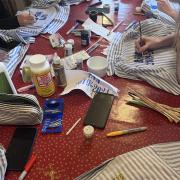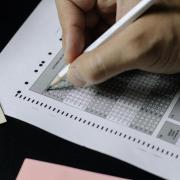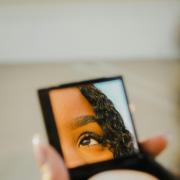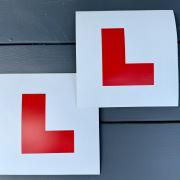
In this day and age, technology is inescapable and everywhere, with social medias taking the world by storm. It has the ability to create and destroy, empower and humiliate. How are you using it?
Like. Like. Like. The wonderful rush of dopamine when you discover that your latest post on Instagram has received ‘likes’ from several hundred people: it must mean they approve, approved so much that they would take all the trouble to press like on your image.
This is how so many people bind their worth to these days- by the likes and followers of their virtual world. It is an undeniable fact that we are, in fact, extremely addicted and obsessed with social media.
Unfortunately, this is the harsh reality of many today’s social media users, especially young people: it is estimated that around 9 in 10 youths aged 13-25 in the UK frequently use social media, including Instagram, Snapchat and Facebook. This highlights the unquestionable influence of social media, but is it doing any good? Could it be in fact a healthy obsession?
Undoubtedly, there are a plethora of benefits of social media such as that it is significantly easier to raise awareness of issues unreported to the media, and then act upon such problems with fundraisers and events. We see this with the Black Lives Matter movement, when in May 2020, a viral video circulated of African American George Floyd suffocated by a police officer kneeling on Floyd’s neck for around 9 minutes. People around the world were revolted and disgusted by the unnecessary excessive force of the police, highlighting a larger underlying issue of racism and police brutality. It was because of social media, that many were educated and saw the true extent of racism. It was because of social media, that such videos could have circulated and shocked millions into sharing, because they agreed that it was suppressed truth that needs to be heard. The true power of social media was yet to come: on Blackout Tuesday June 2020, black boxes stormed and flooded social media, to express solidarity and support against the racial injustice and discrimination.
I remembered being stunned and confused as to why there were so many black boxes everywhere overnight. To me, there seemed to be little explanation of when this was planned and what we had to do, but you soon caught on: you just had to post a black box on your social media account. It was everywhere, and such an enormous movement. I found it beautiful how everyone was standing together against racism, doing what they could to make the world better, especially as most places were still in lockdown.
However, there are always two ways to look at a situation: the good and the bad. Soon, I realised that so many people were posting- it almost seemed like a...trend. People appeared to have participated due to peer pressure, just because everyone else was doing it, not because they believed in it. Of course they may have genuinely believed in it, but it seemed to be the impression that if you didn’t, you were a racist. Nobody would want to be accused of being a racist, and it was so easy to just post a black box. Criticism followed in the press confirming my fears, revealing that the boxes may have been doing more harm than good, especially as the black boxes drowned out the real educational sources of information under the hashtag. It was also astounding how fast the information spread, to so many people, influencing so many minds…
Social media is just as well known for spreading fake news, the opposite of the positive activism we have just seen. As easy as it was to spread ‘good’ and educational content, it is just as easy to spread misleading and hateful information. We see that now, with anti-vaxxers spreading misinformation, leading to ever more skeptics of vaccines, and consequently less people being vaccinated and harming the population in the future. It is a very real issue, and will only continue to grow. Despite the fact that fake news could be regulated, it is not easy: with approximately 100 million posts posted a day on Instagram, one of the largest social media platforms in the world. It is impossible to filter and regulate through everything, no matter how hard they try.
The primary goal of social media is for communication and it is an amazing way to communicate. With a touch of a button, in the comfort of your room, you could speak and form relationships with billions of people around the world. You could find like-minded people and form entire communities, build up friendships with people you don’t have time for in real life. However, it is just as easy for predators and bullies to target you, with an uncomprehendable amount of people daily victims of cyberbullying, leaving a scar for the rest of their lives.
Concerns of correlation between the rise in mental illnesses and increased use of social media is rife. Statistics such “a ten-fold rise in mental illnesses in teens” and “2 in 3 people reported feeling insecure at all one point due to social media” are dominating and undisputedly concerning. Social media is not only ridiculously addictive, but also a virtual platform full of ‘perfect’ pictures and ‘perfect’ lives. It is full of probably photoshopped Despite the fact that we all know that these images are not necessarily real- altered, biased and distorted versions of reality, it is still inescapable to believe them, even subconsciously. Why would you settle for any less if you know that you could have an exciting vacation to Hawaii? Why do you look like this? One is bound to feel secure, and feel uncomfortable.
In the end, social media is meant to be addictive after all, so don’t feel too bad if you are stuck in the cycle-social media companies make money off this. Of course it is not all bad, and has its own share of benefits. However, the negative effects of social media are building, and it has not even existed that long. It is important to be both aware and conscious of social media usage, and that it is a virtual world. You are worth more than your likes, more than the number of followers, and more than the content you see. You are you.
Whilst every care has been taken to assure that the information contained in this article is accurate, if there are unfortunately mistakes or insensitivities, please highlight it and it will be corrected as soon as possible.





























